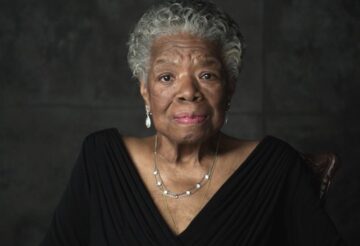From PBS:
They are poets, playwrights, novelists and scholars, and together they helped capture the voice of a nation. They have fearlessly explored racism, abuse and violence as well as love, beauty and music. While their names and styles have changed over the years, they have been the voices of their generations and helped inspire the generations that followed them. What follows is a list of prominent Black authors who have left a mark on the literary world forever.
 Maya Angelou
Maya Angelou
Acclaimed American poet, author and activist Maya Angelou was born in St. Louis, Missouri in 1928. Often referred to as a spokesman for African Americans and women through her many works, her gift of words connected all people who were “committed to raising the moral standards of living in the United States.” [1] “I want to write so that the reader … can say, ‘You know, that’s the truth. I wasn’t there, and I wasn’t a six-foot black girl, but that’s the truth.’ ” [2]
Influenced by Black authors like Langston Hughes, W.E.B. Du Bois and Paul Lawrence Dunbar, her love of language developed at a young age. Her most famous work I Know Why the Caged Bird Sings was published in 1969 and became the first in seven autobiographies of Angelou’s life. A prolific poet, her words often depict Black beauty, the strength of women and the human spirit, and the demand for social justice. Her first collection of poems Just Give Me a Cool Drink of Water ‘fore I Diiie was nominated for a Pulitzer Prize in 1972, the same year she became the first Black woman to have a screenplay produced. Writing for adults and children, Angelou was one of several African American women at the time who explored the Black female autobiographical tradition. Other female authors and contemporaries include Paule Marshall who published the novel Brown Girl, Brownstones and Illinois Poet Laureate Gwendolyn Brooks, many of whose poems lyricize the urban poor.
More here. (Note: In honor of Black History Month, at least one post will be devoted to its 2024 theme of “African Americans and the Arts” throughout the month of February)
